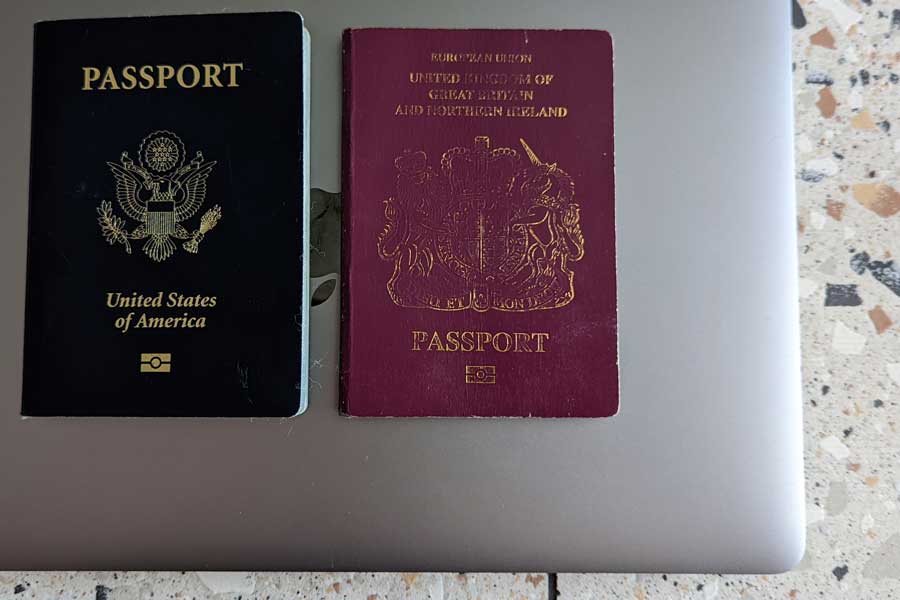Buying a house, whether it’s your first house or another property is one of the biggest financial decisions that you’ll ever make. If it is your first home, it’s a huge change. Not only for your finances but also a big shift in your lifestyle. Looking at the day-to-day impact, buying a home is right up there having a kid or graduating college and moving to a city.
You might be wondering whether it’s time for you to buy a house and so we put together this guide to help guide you through. After you’ve worked your way through this list, you have a better idea of whether home ownership is for you.
You Can Feel Good About Buying a House If….
These five signs are by no way exhaustive but are a good place to start. They’re not a checklist or a quiz, so don’t feel bad if you don’t hit all the points. It’s just a good guide in terms of whether you’re emotionally and financially ready to have a house.
You’ve Got a Steady Job and Income
It doesn’t necessarily have to be full-time work, it could be freelancing, but what we mean by job is a steady income. You’ve got regular money coming in. This is important for a number of reasons but foremost because you’ll need to pay a mortgage every month.
It’s also important because it’s a key way that the lenders will assess your suitability for a loan. If you can’t show that you have consistent money coming through the door, then they’ll look at you in a negative light. In most cases, a lender will look for documentation of a steady income for the past 2 years at least.
You Want to Live In This Area for a Decent Period of Time
It’s a huge commitment buying a home and it ties you to a certain area. You can certainly sell a house soon after buying it, but you’ll probably lose money and time in the process. It’s much more expensive than moving away from a condo or apartment lease.
You want to buy a place that is comfortable for your immediate needs, but also if you have future plans for a partner or children that they could support this at least in the short term. If you do have plans for children in the near future, maybe you should look for a slightly bigger place that will support this growth in your family instead of moving in the next year when child number one comes along.
You Have Built Solid Savings Up For The Down Payment
When looking at home ownership – the down payment is one of the biggest hurdles to getting on the ownership ladder. It isn’t as bad as it used to be – you used to have to save up 20% for a mortgage.
Nowadays you’re likely to put down a deposit between 3% and 10% of the total purchase price. The down payment is just one of the costs that come with buying a house – you’ll also need to think about the closing costs. The closing costs can range from 2% to 5% of the total cost of the home – not insignificant.
For a $400,000 home you’ll need between $12,000 and $40,000 for a deposit and between $8,000 and $20,000 for the closing costs. If you already have money saved up you’ll be in a better place and ready to buy a home.

You Feel Completely Ready to Take Ownership of a Home
We don’t mean this lightly. The downpayment and closing costs are just the beginning of the costs when it comes to homeownership. It can be a huge financial responsibility to maintain a home. Think about everything that you currently ask your landlord to do – and now you have to do it or pay for it all yourself. It can be a lot.
Even if you are purchasing a brand new home then you’ll still have unexpected expenses. You’ll have to give up some of your evenings and weekends to keep things up to date.
And imagine if you move into an older home – there would be even more to do. If you don’t like the idea of all the maintenance you could always buy an apartment or condo – you’ll have to pay homeowner fees but they’ll look after the public spaces, roofs etc. Definitely, something to think about.
You Want to Live in the Area You Can Afford
Buying a house because you can is very different from buying a house in an area that you’d want to live in. Especially when you’re first setting out you might not get the size of house you want in the area you want – but this is when you need to think about what compromises you are willing to make.
If you’ve found a place that you really like, suits your budget and your lifestyle, then you can start your property search. You might still need to make tradeoffs but it’s important to know what you’re willing to compromise for the right property. It’s best to buy somewhere that you really want to live instead of just buying to get on the property ladder.
Consider Postponing Buying a House if Any of the Following Applies
The below list are all yellow lights – definitely not deal breakers but if you recognize yourself in more than one of them then it should give you pause. It doesn’t mean you can’t buy a house but it is definitely worth proceeding with caution. These yellows might turn green as your life changes and your finances evolve. It’s an ever-changing landscape.
You Feel Pressured Into Buying a House
Peer pressure and keeping up with the Jones is real. You might find yourself scrolling through Instagram looking at photos of people in their new homes and you’re wondering “why not me?” It’s ok to ignore these. You have no idea what the circumstances are behind them buying this house.
They might have received help from their parents or they might have taken out a mortgage that they can hardly afford. Just keep scrolling and stick to your own plan. Owning a house does not mean you have hit adulthood so don’t think that. If you feel ready, financially and emotionally, that’s great. If not, ignore everyone else and keep on your own path.
Your Credit Score Isn’t As High As You’d Want It To Be
When applying for a mortgage your credit score is a huge determining factor in whether you’ll get a loan or not to buy a house.
The income is there to tell a lender whether you can pay back your monthly payments, and your credit history is there to tell them if you actually will. They will look at your ability to pay back debts on time in the past as past behavior is a good indicator of future behavior.
The credit score acts as a barometer of how risky a client you are. The higher the credit score the better rates and terms you will get, the lower the credit score the worse rates and terms you will get. Spending some time improving your credit score before you apply for a mortgage is time well spent and will save you considerable money in the long haul.
Your Debt to Income Ratio is High
When lending money, mortgage lenders don’t just look at how much cash you have coming in each month, they also look at how much debt you have outstanding. They will then create a DTI (Debt to Income Ratio) which indicates how risky you are as a client.
To come up with this number you take your total monthly loans and debt outgoings (car payments, credit cards or student loans) and divide it by your yearly pretax income.
When looking at potential clients most lenders want a DTI that is 35% or lower. If you have a DTI of over 40% then you should work to pay down your existing debts before applying for a mortgage, If you make a mortgage application and it is rejected this will impact your credit score, hurting your chances of being successful in the future.
Being Tied Down Makes You Concerned
Are you a travel nut? Do you love to move from one place to another? Then buying a property might not work for you.
It’s not just traveling to other countries – maybe you want to go back to school or go hitchhiking – anything that means you don’t want to be tied down. All of these things are great but might not be compatible with being a homeowner as you’ll be anchored to one location.
Especially if what you might want to do involves reducing your salary, or living off your savings. How would you pay back your mortgage each month? And imagine if there are unexpected repairs that happen – how will you cover them? It’s bad enough if your roof leaks while you’re at home – what if you are traveling and don’t even know it is happening. Something to think about.

If you like to travel then you might not want to be tied down by owning a property. Think about this before investing.
The Mortgage Payments Would Exceed Your Budget
There is a difference between being able to buy a property and truly being able to afford it. House prices keep rising which means that good properties at good prices become harder to find. And as we mentioned above, once you’ve bought the place, the costs are just starting. Make sure you don’t stretch yourself too thin on the mortgage payments – you never know what could happen in the future.
Humans are very good at rationalizing things like “this is expensive now but when I get promoted it will be affordable”. What if you don’t get promoted, or you decide that you like your current job. Will you still want to make those monthly payments if it means you can’t do anything else with your life?
Keep in mind the 28/36 rule to make sure you aren’t “house poor”. This means you should put no more than 28% of your pretax income towards all the costs of homeownership. You should also max out debt repayments at 36% of your gross income.
There are no hard or fast rules for whether you’re ready to buy a home. Every circumstance is different but we offer these pointers as a guide to some of the things you should think about before you jump in.


